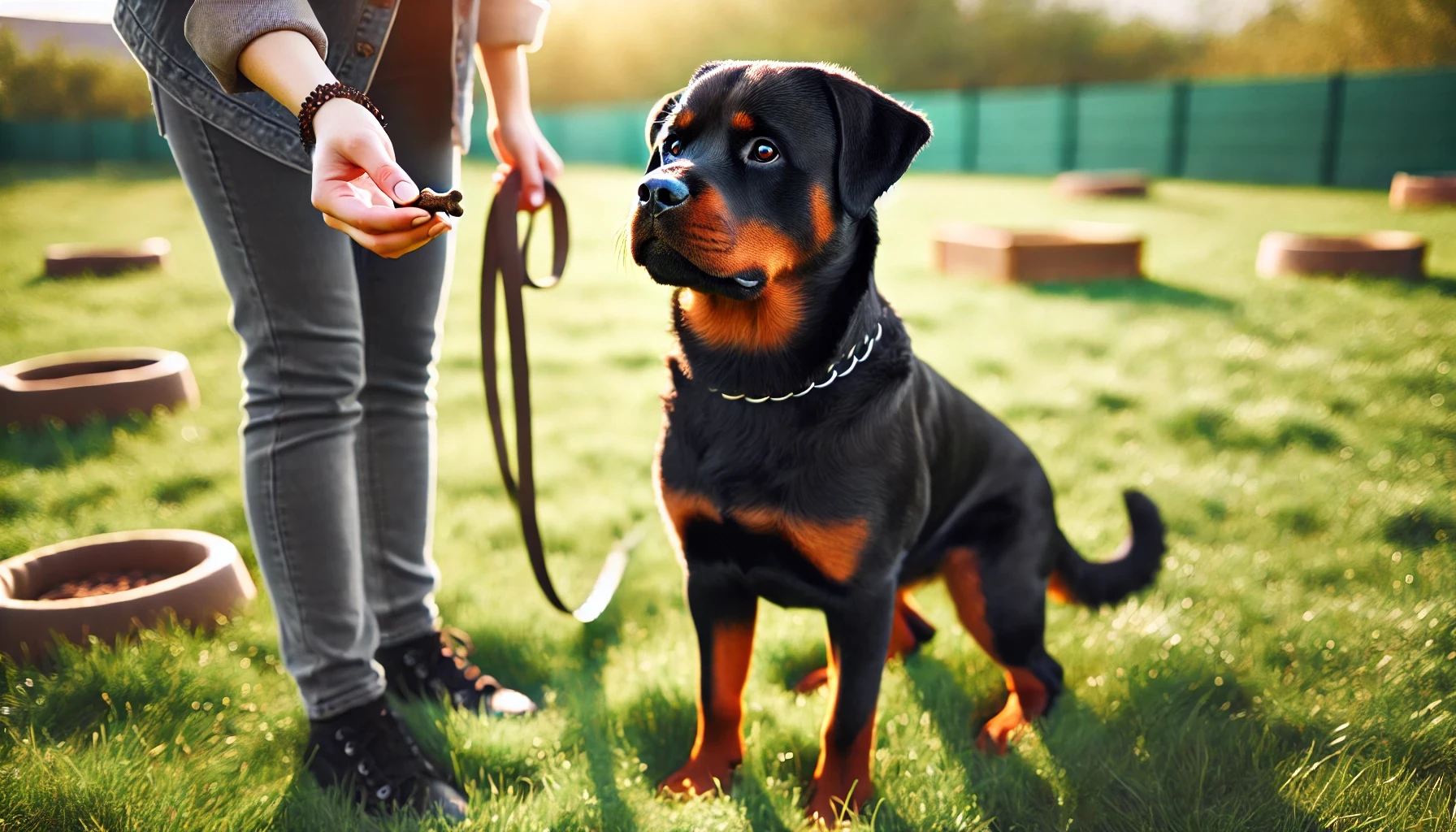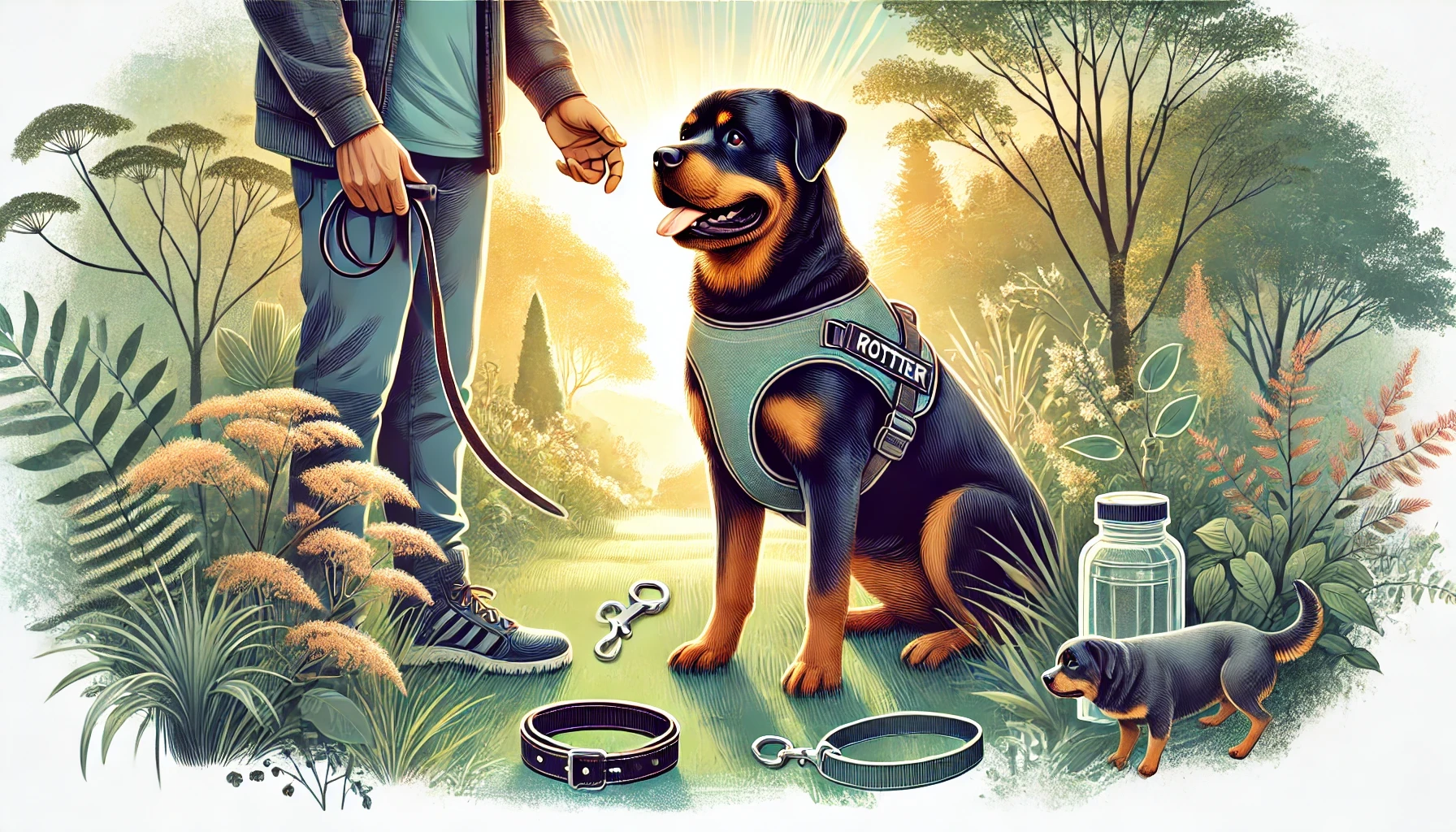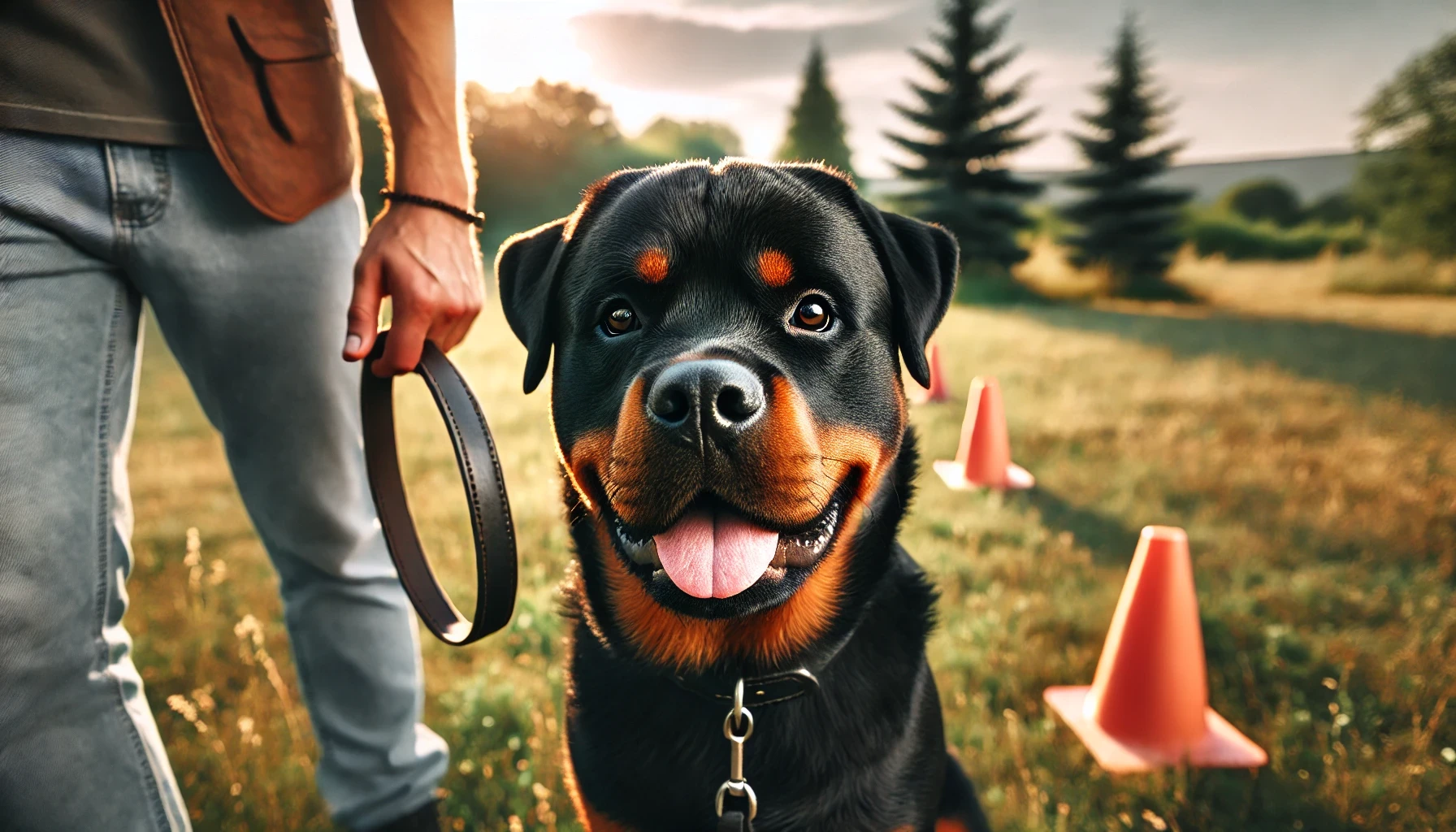On this page
Can Early Obedience Training Help Prevent Aggression in Rottweilers?
Yes, early obedience training is key to preventing aggression in Rottweilers. Puppies that are socialized and trained before 16 weeks are 70% less likely to develop aggressive behavior. Start with basic commands and introduce them to other dogs and environments in a controlled way to build confidence and reduce future aggression.
Tips for Managing Existing Aggression:
Enroll in Behavior Classes: Professional trainers can offer corrective training techniques tailored to Rottweilers.
Controlled Socialization: Start with calm, friendly dogs on neutral ground to rebuild positive experiences.
Need expert training advice? Access Dosty App personalized dog training resources today!
Is Aggression in Rottweilers a Natural Breed Trait?
Not entirely, Rottweilers are naturally territorial and protective. When compared to Golden Retrievers, for instance, Rottweilers require more structured boundaries to prevent their instincts from escalating into aggression.
Steps to Harness Breed Traits:
Channel Protective Instincts: Engage in games like agility or scent training to redirect energy positively.
Use Clear Commands: Rottweilers respond well to consistent authority; reinforce “sit,” “stay,” or “leave it” during encounters.
Need help setting boundaries? Explore Dosty.co’s expert guidance today! Learn More.
Can Health Issues Make Rottweilers More Aggressive?
Yes, health issues can exacerbate aggressive behavior. For example, thyroid imbalances, pain, or poor diet often lead to irritability in Rottweilers. A comparison study shows that Labradors with similar conditions displayed lower aggression due to their generally milder temperament.
Signs to Watch For:
Changes in appetite or energy levels.
Unusual sensitivity to touch.
Unexplained growling or snapping.
Regular vet check-ups are essential. Consider using Dosty.co’s Symptom Checker for early diagnosis.
Can My Behavior Affect My Rottweiler’s Aggressive Reactions?
Your reaction heavily impacts your Rottweiler’s behavior. Reacting with anger or fear often escalates Rottweiler’s Aggression. Instead, focus on calm, assertive responses to de-escalate situations.
Practical Strategies:
Stay Calm: Avoid shouting or pulling abruptly on the leash.
Reward Calm Behavior: Use treats or verbal praise when your dog remains composed.
Redirect Focus: Use toys or commands to shift their attention away from triggers.
Your behavior and how you engage with your Rottweiler play a crucial role in their mental stimulation—learn more about keeping them mentally active in this guide on preventing boredom in Rottweilers.

Are Tools Like Muzzles and Harnesses Helpful for Rottweiller?
Yes, tools like muzzles and harnesses can be highly effective for managing Rottweilers when used correctly. A well-fitted muzzle provides safety in situations where aggression or anxiety may arise, while a front-clip harness improves control during walks, reducing pulling by up to 70%. These tools work best alongside consistent training and positive reinforcement for long-term behavioral improvement. Always ensure proper fitting and consult a professional to maximize their effectiveness and safety.
Choosing the Right Tools:
Muzzle Training: Use a basket muzzle to allow panting while preventing bites.
Harness Use: Opt for a front-clip harness to reduce pulling.

Could My Rottweiler’s Aggression Be Anxiety-Driven?
Anxiety in Rottweilers can manifest as aggression, especially when encountering new dogs. Similar to Maltese Terriers, they may overreact to unfamiliar situations due to insecurity.
How to Address Anxiety:
Calming Supplements: Look for vet-approved options like melatonin or L-theanine.
Desensitization Training: Gradually expose your Rottweiler to new dogs at a distance, rewarding calm behavior.
Create a Routine: Predictable schedules reduce stress.
Why Is My Rottweiler Aggressive Toward Specific Dog Breeds?
Aggression toward specific breeds could stem from past negative experiences or mismatched play styles. For example, Bulldogs’ rough play might overwhelm a Rottweiler, triggering defensive behavior.
How to Manage Rottweiler-Specific Aggression:
Supervise Interactions: Limit initial encounters to calm, non-confrontational breeds.
Focus on Neutral Zones: Avoid introducing new dogs in your Rottweiler’s territory.
Discover how proper training and mental stimulation can improve your Rottweiler's behavior on Dosty.

Can Dietary Changes Help Reduce Aggression in Rottweiler?
Yes, a balanced diet plays a surprising role in Rottweilers’ behavior management. For instance, Omega-3 fatty acids reduce inflammation and support brain health, leading to calmer behavior.
Dietary Recommendations:
Include high-quality protein from sources like chicken or fish.
Avoid artificial additives that can contribute to hyperactivity.
Consult with a vet for breed-specific nutritional needs.
Diet plays a significant role in your Rottweiler’s behavior—explore tips for managing their eating habits in this guide on what to do if your Rottweiler refuses to eat.
Effective Steps to Manage Your Rottweiler’s Aggression When Meeting New Dogs
To manage aggression in your 2-year-old Rottweiler when meeting new dogs, start by identifying potential triggers such as fear or overprotectiveness. Use tools like a no-pull harness for better control and practice calm, short introductions in neutral spaces. Always reward positive behavior with treats or praise and redirect their focus if signs of aggression arise.
Consistency in training and early socialization are key to building trust and reducing tension during interactions. If aggression persists, consult a professional trainer or behaviorist to ensure your Rottweiler’s long-term well-being.


